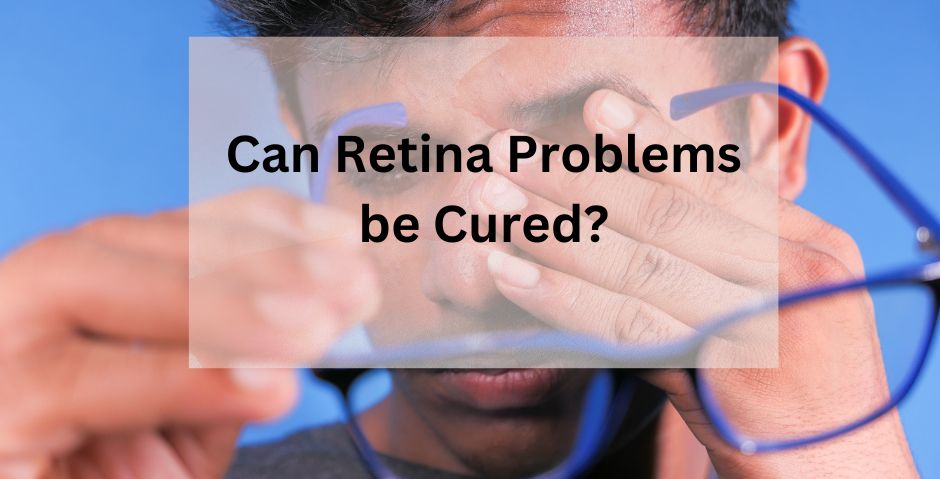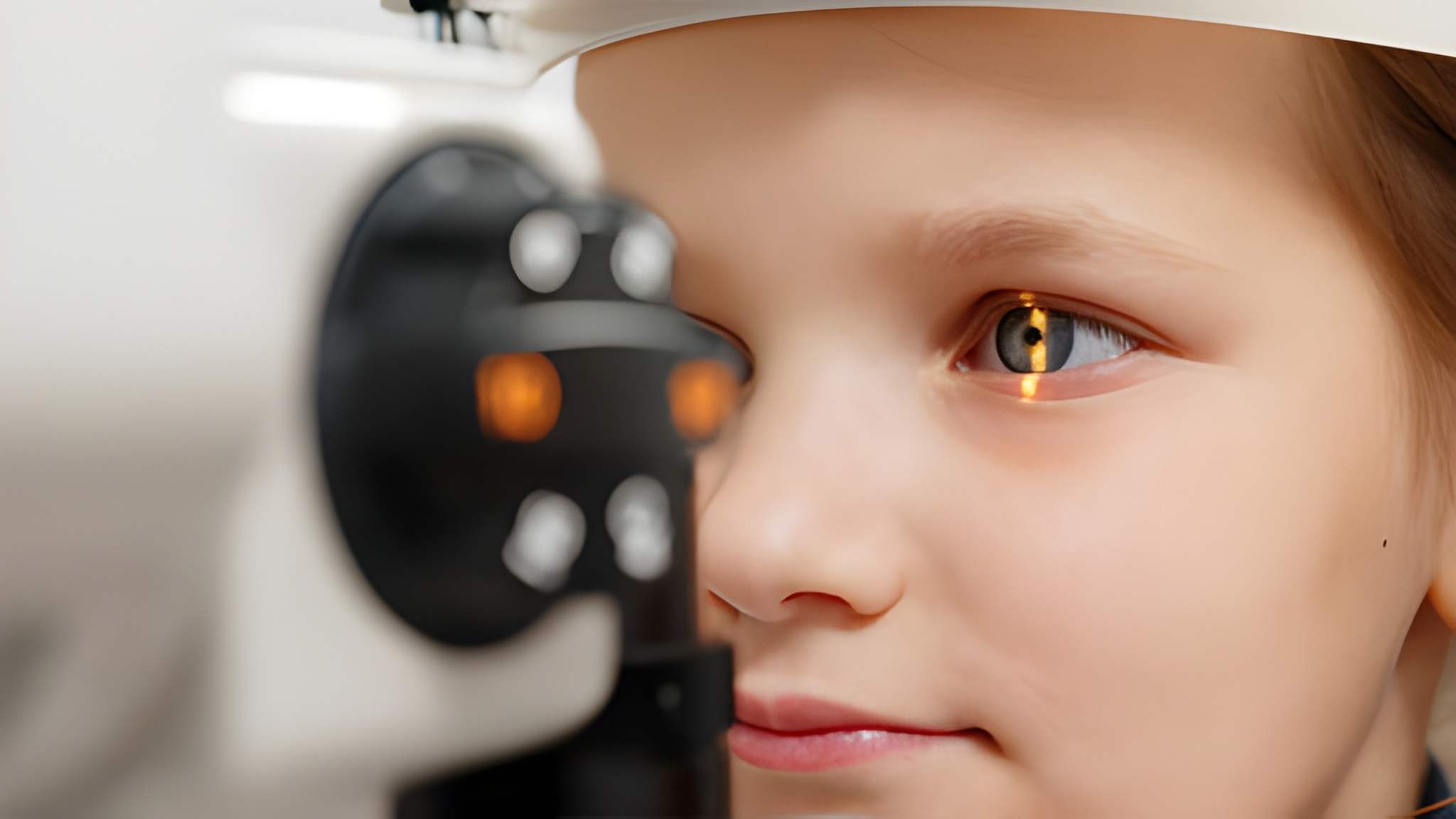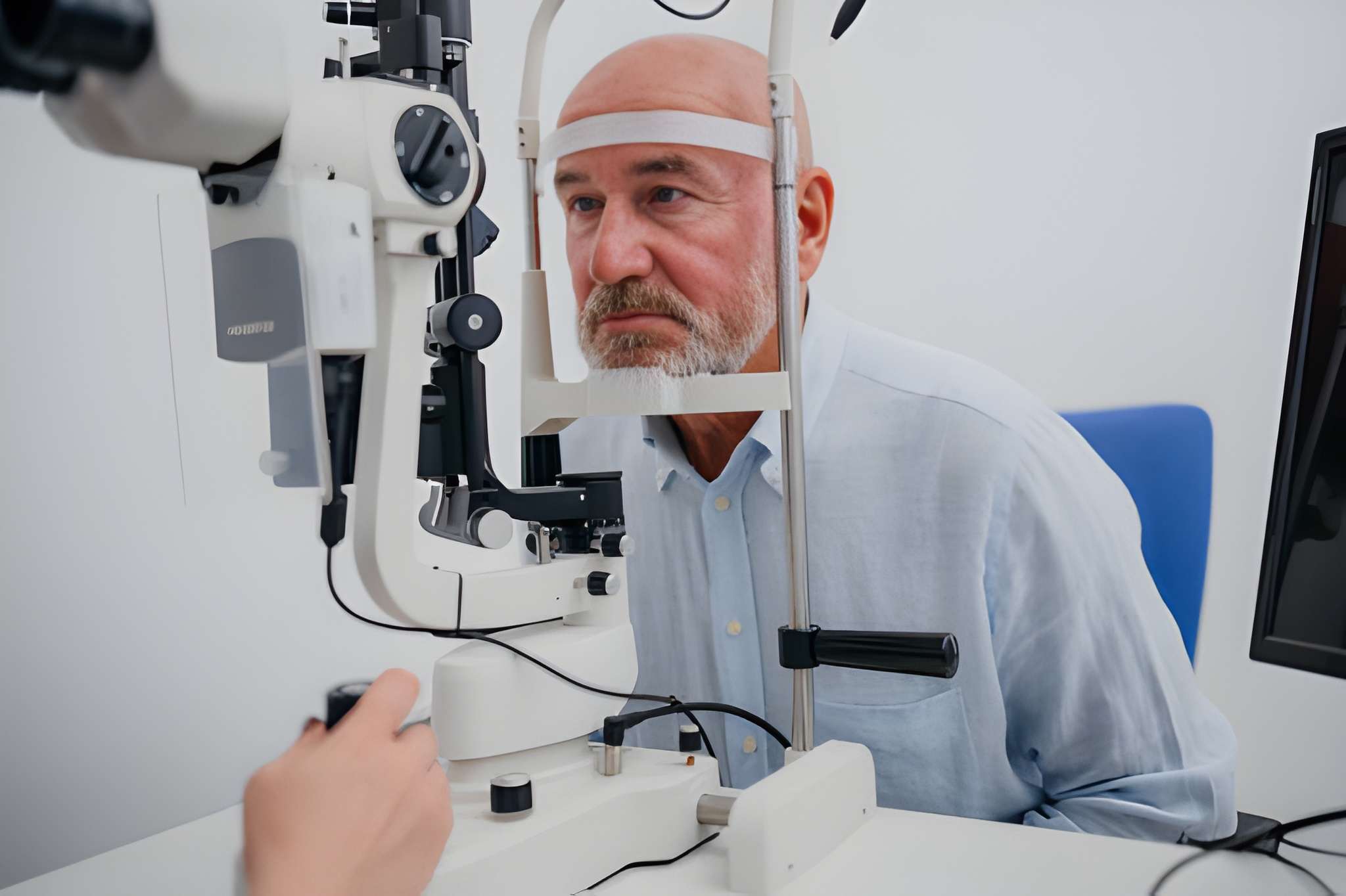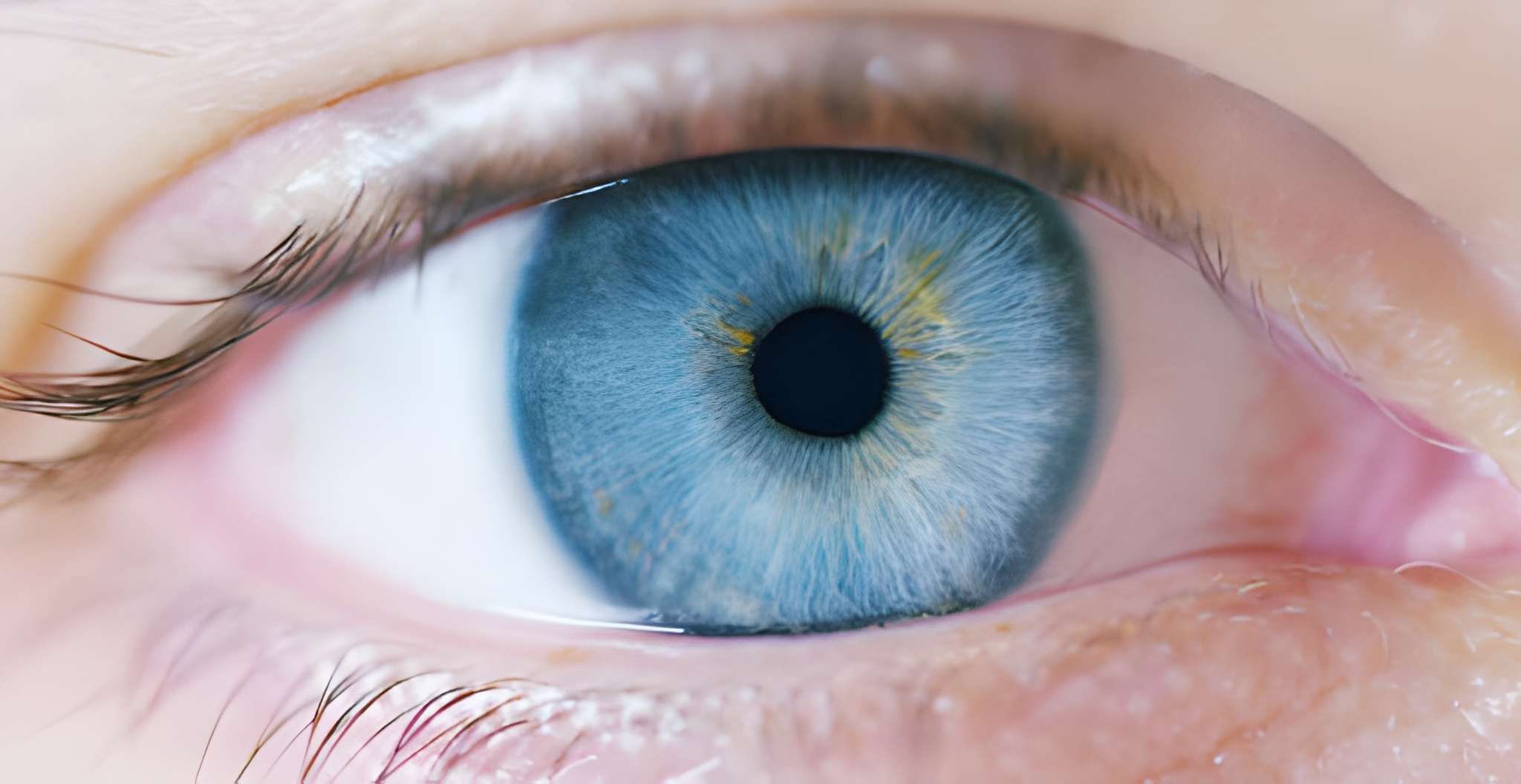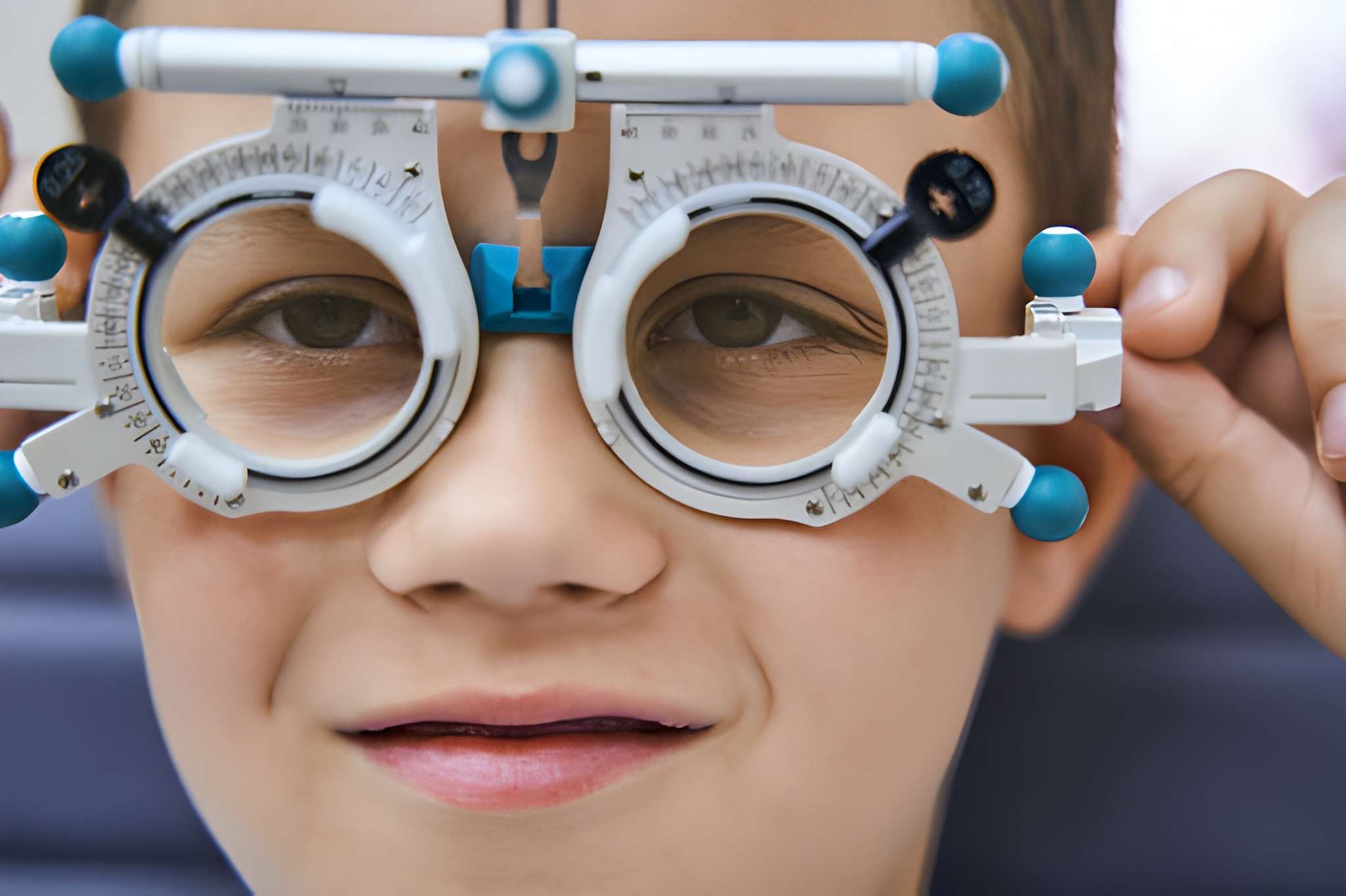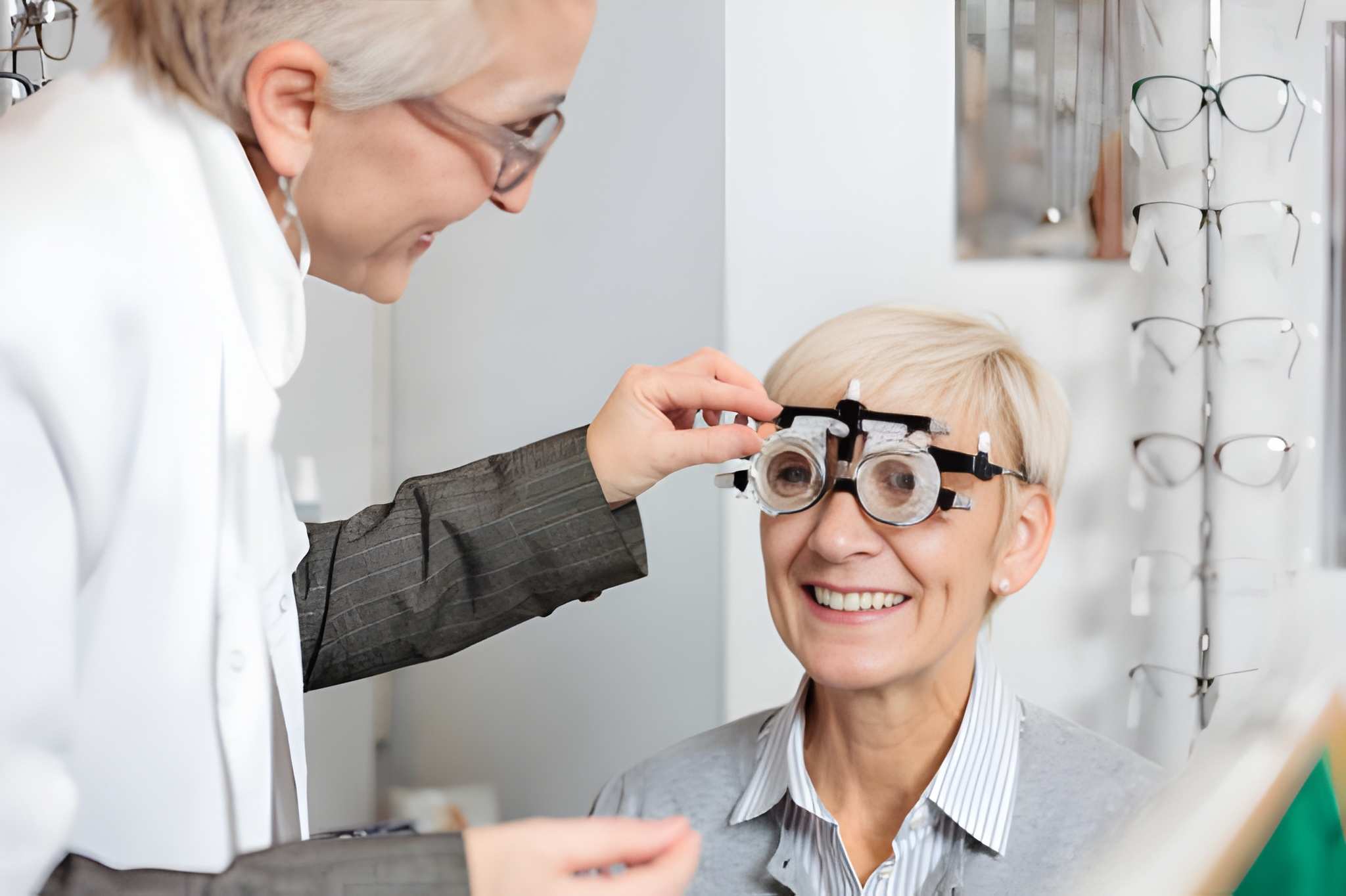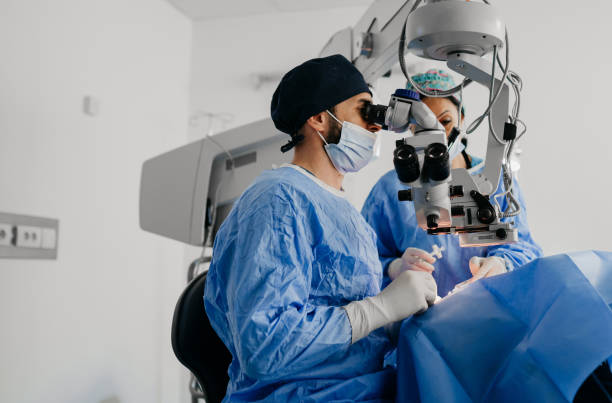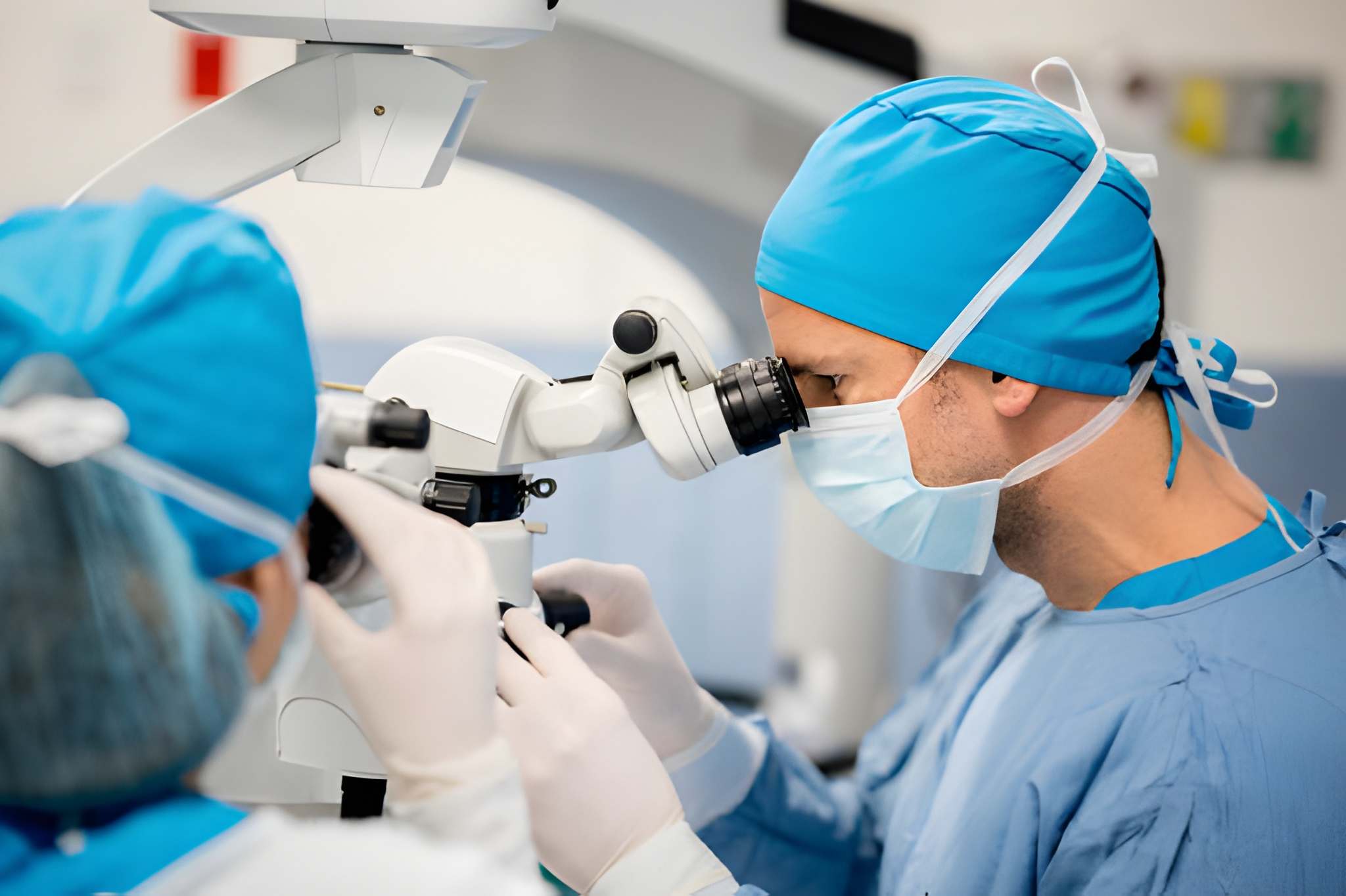The retina, a complex tissue located at the back of the eye, plays a critical role in vision. It acts like the film in a camera, capturing light and converting it into electrical signals that the brain interprets as images. Given its importance, any damage or abnormalities in the retina can have significant implications for vision.
Retina problems encompass a wide range of conditions, from age-related degeneration to diabetic complications and genetic disorders. These conditions can vary in severity, ranging from mild visual disturbances to complete blindness. Despite the challenges they present, advances in medical science offer hope for effective treatment and management.
Book a Consultation With Retina Specialist in Dubai
Understand Retina Problems
Age-related macular degeneration (AMD) is one of the most common retina problems, particularly among older adults. It affects the macula, the central part of the retina responsible for sharp, central vision. AMD can lead to blurred or distorted vision, making it difficult to read, drive, or recognize faces.
Diabetic retinopathy is another prevalent condition, occurring in individuals with diabetes. High blood sugar levels can damage the blood vessels in the retina, leading to leakage, swelling, and even the growth of abnormal blood vessels. If left untreated, diabetic retinopathy can cause severe vision loss or blindness.
Can Retina Heal Without Surgery?
Retinal detachment is a serious condition in which the retina peels away from the underlying tissue. This detachment can occur suddenly due to trauma or gradually as a result of underlying retinal diseases. Prompt surgical intervention is necessary to reattach the retina and prevent permanent vision loss.
Retinitis pigmentosa is a group of inherited disorders that affect the retina’s ability to respond to light. It typically causes night blindness and peripheral vision loss, progressing to tunnel vision and eventually blindness in some cases. While there is currently no cure for retinitis pigmentosa, research into gene therapy and retinal implants offers hope for future treatments.
Current Treatment Options
Treatment options for retina problems vary depending on the specific condition and its severity. In the case of AMD, anti-VEGF medications are often used to inhibit the growth of abnormal blood vessels and reduce leakage in the retina. These drugs are typically administered through injections into the eye and may require regular monitoring and retreatment.
Read More: What Vitamin Deficiency is Retina?
Laser therapy, known as photocoagulation, is commonly used to treat diabetic retinopathy by sealing leaking blood vessels and reducing the risk of further damage. In some cases, surgery may be necessary to remove scar tissue or repair retinal detachment. Vitrectomy, a surgical procedure to remove the gel-like fluid in the eye, may also be performed to improve vision in certain cases of diabetic retinopathy or retinal detachment.
Emerging treatments, such as photodynamic therapy and intraocular implants, are being investigated for their potential in managing retina problems. Photodynamic therapy involves the use of a light-activated drug to target abnormal blood vessels in the retina, while intraocular implants deliver sustained-release medication to the eye, reducing the need for frequent injections.
What is the retina and pupil?
Challenges in Curing Retina Problems
While significant progress has been made in the treatment of retina problems, curing these conditions remains a challenge. The complexity of the retina, with its intricate network of blood vessels and photoreceptor cells, presents hurdles for researchers and clinicians alike. Moreover, the genetic component of many retina disorders adds another layer of complexity, making it difficult to develop universal treatments.
Accessibility and affordability of treatment also pose barriers for many patients, particularly those in underserved communities or developing countries. The high cost of medications, surgical procedures, and follow-up care can place a significant burden on individuals and healthcare systems, limiting access to essential treatments.
Advances in Research and Future Outlook
Despite these challenges, ongoing research offers hope for the future of retina treatment. Stem cell therapy, for example, holds promise for regenerating damaged retinal tissue and restoring vision in patients with conditions like AMD and retinitis pigmentosa. By transplanting healthy retinal cells or stimulating the body’s own stem cells, researchers aim to replace damaged or degenerated tissue and improve visual function.
Gene therapy is another area of active investigation, particularly for inherited retinal disorders like retinitis pigmentosa. By targeting specific genetic mutations associated with these conditions, researchers hope to develop therapies that can correct or compensate for defective genes, slowing or halting the progression of vision loss.
Read More: Can Screen Time Cause Strabismus?
Artificial retina implants, also known as retinal prostheses, offer a promising alternative for individuals with severe vision loss due to retinal degeneration. These devices bypass damaged retinal cells and directly stimulate the remaining healthy cells, allowing for the perception of light and shapes. While still in the early stages of development, artificial retina implants have shown encouraging results in clinical trials and hold potential for widespread use in the future.
Nanotechnology is another area of active research in the field of retina treatment. By harnessing the unique properties of nanoparticles, researchers aim to develop targeted drug delivery systems, diagnostic tools, and tissue engineering scaffolds for repairing and regenerating damaged retinal tissue. These nanoscale interventions have the potential to revolutionize the treatment of retina problems, offering more precise and effective therapies with fewer side effects.
Lifestyle Changes and Preventive Measures
While medical interventions play a crucial role in managing retina problems, lifestyle changes and preventive measures are equally important for preserving vision and preventing further damage. Regular eye check-ups are essential for early detection and treatment of retina disorders, allowing for timely intervention before irreversible vision loss occurs. Individuals with diabetes should monitor their blood sugar levels closely and adhere to their treatment regimen to reduce the risk of diabetic retinopathy.
A healthy lifestyle, including a balanced diet rich in antioxidants and omega-3 fatty acids, can support retinal health and reduce the risk of age-related degeneration. Foods such as leafy greens, fish, nuts, and citrus fruits are particularly beneficial for eye health. Smoking cessation is also important, as smoking has been linked to an increased risk of AMD and other retina problems.
Protecting the eyes from injury is another crucial aspect of preventive care. Wearing protective eyewear during sports and activities that pose a risk of eye injury can help prevent traumatic damage to the retina. Additionally, practicing good hygiene, such as avoiding rubbing the eyes and using proper contact lens care, can reduce the risk of infections and other complications that may affect retinal health.
Is Retina Surgery Painful?
Final Thoughts
In conclusion, while the prospect of curing retina problems remains a challenge, significant progress has been made in understanding these conditions and developing effective treatments. Through continued research and innovation, we are moving closer to a future where vision loss due to retina problems can be effectively prevented and treated. By taking proactive steps to manage eye health, individuals can reduce their risk of developing retina disorders and preserve their vision for years to come.
What is the Cost of Retina Surgery in UAE
Schedule a Consultation with Dr. Qasim Qasem
If you or a loved one is experiencing symptoms of retina problems or have been diagnosed with a retina disorder, don’t wait to seek expert guidance. Dr. Qasim Qasem , the best ophthalmologist in Dubai specializing in retina care, is here to help.
With years of experience and a commitment to providing personalized care, Dr. Qasim Qasem offers comprehensive evaluations, advanced treatment options, and compassionate support to patients facing retina problems. Whether you’re seeking a second opinion, exploring treatment options, or simply have questions about your eye health, Dr. Qasim Qasem and his team are dedicated to providing the highest level of care.



